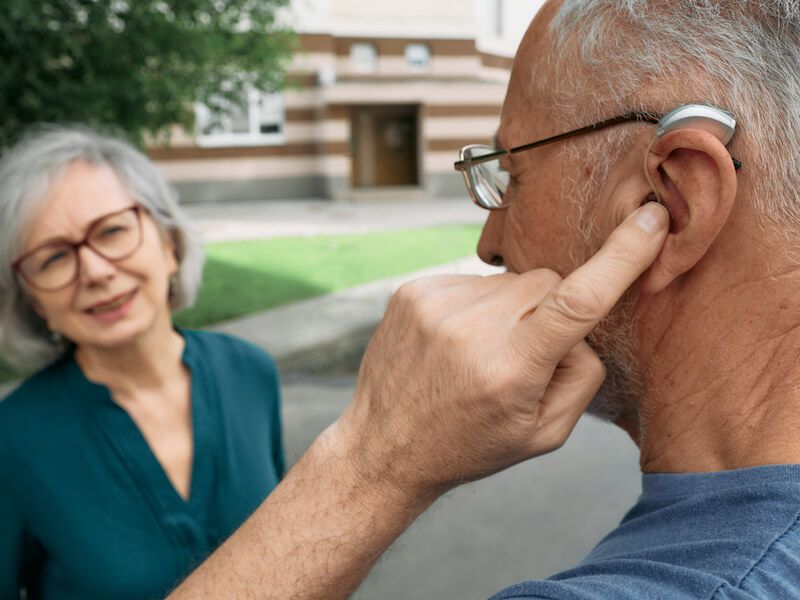Hearing Aids Can Fail in These Three Ways

Have you ever been watching your favorite Netflix show when your internet suddenly disappears? Instead of discovering who won the baking show, you have to watch an endless spinning circle. And so you just wait. Perhaps it’s your modem, could be your router, possibly it’s the internet provider, or maybe it’ll just fix itself. It’s not a great feeling.
Technology can be tremendously frustrating when it doesn’t work properly. The same is certainly true of your hearing aids. When they’re working properly, hearing aids can help you stay connected with the ones you love and better hear co-workers when they talk to you.
But your symptoms of hearing loss can suddenly become extremely frustrating when your hearing aids quit working. The technology you’re depending on has failed you. Why would your hearing aids just quit working? So what should you do? Well, there are three common ways that hearing aids can fail, here’s how you can begin to recognize and troubleshoot those problems.
Hearing aids can often have three common issues
Hearing aids are sophisticated devices. Even still, there are some common problems that individuals with hearing aids may encounter. Let’s have a look at possible causes of these issues and potential fixes.
Whistling and feedback
So, perhaps you’re trying to have a conversation with your family or watch your favorite show and you begin to notice a horrific whistling noise. Or maybe you detect a bit of feedback. And so you think, “Why do I hear whistling in my hearing aids? This is odd”.
Here are three possible issues that could be causing this feedback and whistling:
- The functionality of your hearing aid can be affected by earwax buildup in your ear canal. This is a rather common one. Whistling and feedback are often one outcome of this kind of earwax accumulation. If possible, you can try clearing some earwax out of your ear or consult with us about the best method to do that (don’t use a cotton swab).
- Your hearing aids may not be seated in your ears correctly. Try removing them and putting them back in. If the fit isn’t right you may need to come see us so we can help you get a better fit.
- The tubing that attaches the hearing aid with the earmold, on behind-the-ear models, can sometimes become compromised. Have a close look to see if the tube may have separated or may be compromised somehow.
If these problems are not easily resolvable, it’s worth consulting with us about adjusting the fit or sending your device in for servicing (depending on what we determine the underlying cause of that whistling or feedback might be).
Hearing aids not generating sound
The main purpose of hearing aids is to produce sound. That’s their main function! Something has undoubtedly gone wrong if you can’t hear any sound coming out of your hearing aid. So what could be the explanation when hearing aids work but no sound comes through? Well, there are a couple of things:
- Your settings: Cycle through the personalized settings if your device has them. It’s possible your hearing devices are on the wrong custom program (so maybe your hearing aids think you’re in a gymnasium instead of around the kitchen table). This incorrect setting could throw off the sound you’re hearing.
- Batteries: If you have rechargeable batteries, be sure that they’re fully charged. And even rechargeable batteries should be switched out from time to time.
- Power: Everyone forgets to turn their hearing aids on once in a while. Check for this first. This possible problem can then be eliminated..
- Earwax buildup: Yup, earwax strikes again. Take a close look to see if you find any earwax on the speakers or microphone. Keep your device very clean.
If these steps don’t help with your problems, we might have the solution. Whether repair, maintenance, or replacement is your next step, we will be able to help you figure that out.
Painful ears while you’re wearing your hearing aids
Perhaps your hearing aids are fine functionally but they hurt when you put them in. And you’re probably wondering why your hearing aids would make your ears hurt. You’re not as likely to wear your hearing aids on a daily basis if they hurt your ears. So, what could be causing it?
- Time: Usually, it just takes a little while to get used to your hearing aids. Each individual will have a different adjustment period. It’s worth talking about when you buy your hearing aids so you have a reasonable idea of how long it might take you to get comfortable with your devices. Also, speak with us about any discomfort you may be having.
- Fit: The most obvious issue can be the fit. Needless to say, when the fit is nice and snug, your hearing aids will work best. Which means that there can occasionally be discomfort involved in a poor fit. Many hearing aids can be personalized to your specific ears. The better the fit, the fewer problems you’ll have with pain over the long run. We will be able to help you achieve the best possible fit from your devices.
Take your new hearing aid out for a test ride
One of the best ways to prevent possible issues with hearing aids is to take them for a bit of a test drive before you decide. In the majority of instances we’ll let you try out a pair of devices before you decide that’s the pair for you.
As a matter of fact, we can help you figure out the best type of hearing aid for your needs, adjust the fit to match your ears, and help you handle any extended issues you might have with your devices. We will be your resource for any help you need.
And that’s a lot more than you will get with an over-the-counter hearing aid!


